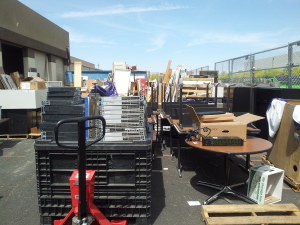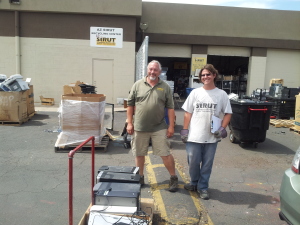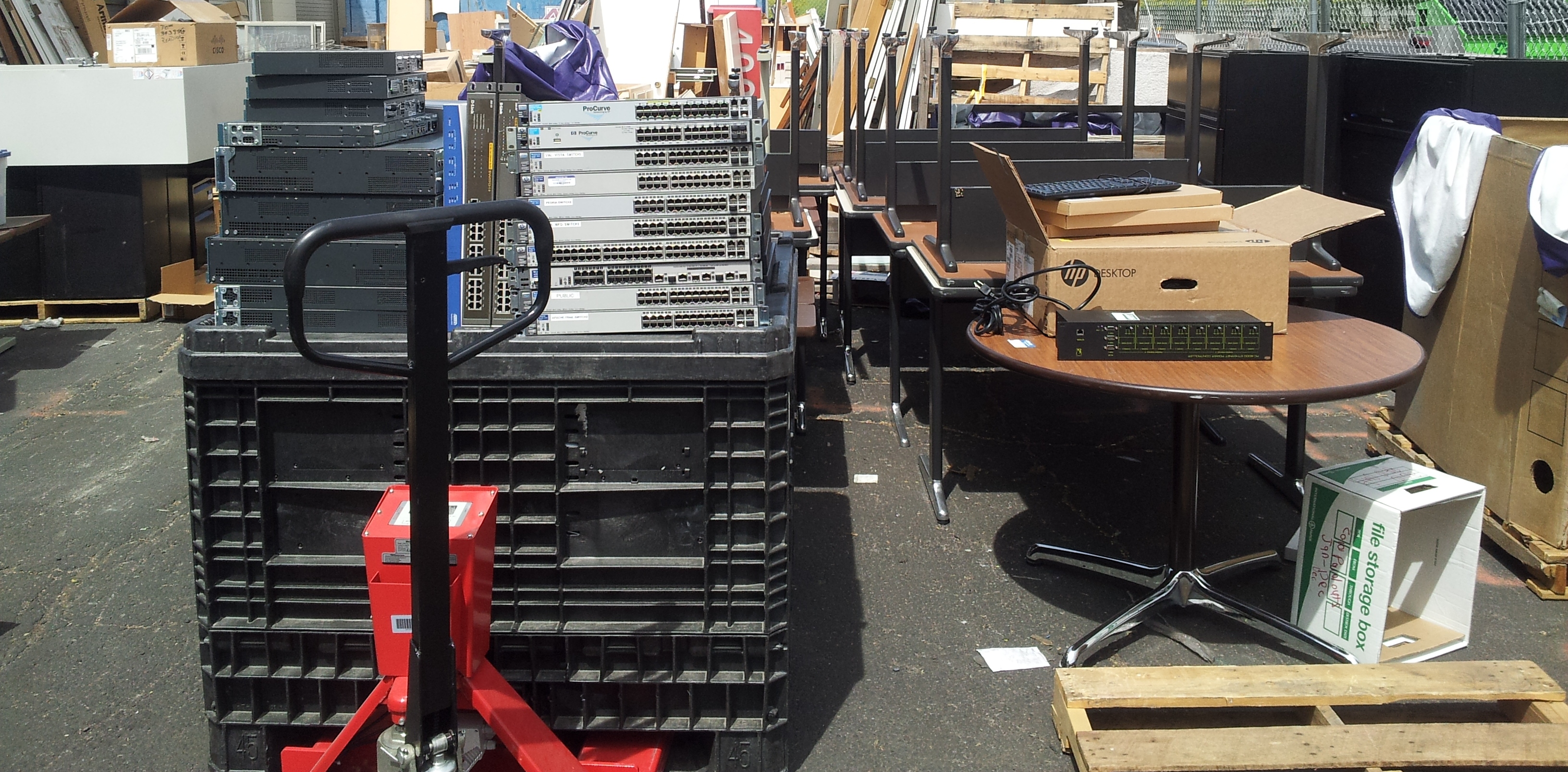By Yegor Zenkov
Recently, TPA’s Interact club was able to donate seven computers to a local nonprofit. If you blink, you might miss it. Tucked in the side of Stardust Building Materials, 1720 W. Broadway Road in Mesa, AZ StRUT (Students Recycling Used Technology) has served the Valley since 1997, recycling and distributing computers to school districts in need.
 Turn the corner, and you’ll see a veritable mountain of mice, cable, monitors, and ten-foot stacks of desktops, wrapped in cellophane. Bands of volunteers wheel carts and forklifts, while in the background yet more people are busy near banks of monitors, getting several computers ready at once.
Turn the corner, and you’ll see a veritable mountain of mice, cable, monitors, and ten-foot stacks of desktops, wrapped in cellophane. Bands of volunteers wheel carts and forklifts, while in the background yet more people are busy near banks of monitors, getting several computers ready at once.
We got the chance to talk to the director, Tom Mehlert, about his organization and the fate of our donation.
De Equitibus: How did AZ StRUT first come about?
Tom Mehlert: Intel and Motorola had accumulated a lot of older computer systems, so they collaborated on an initiative to donate them to underfunded school districts. This later evolved into an expanded partnership between local businesses and schools that became its own nonprofit organization.
DE: Who are all of these computers going to?
 TM: We save all of the newest computers for the schools. The others go to technology camps, where low-income children are given the opportunity to disassemble and reassemble computers to learn more about them, as well as a computer of their own. Sometimes we get vintage computers that won’t be functionally useful to anyone, but are too historically important to throw away. We were recently donated an Apple II, complete with an original monitor and keyboard, so we will do our best to restore it and sell it.
TM: We save all of the newest computers for the schools. The others go to technology camps, where low-income children are given the opportunity to disassemble and reassemble computers to learn more about them, as well as a computer of their own. Sometimes we get vintage computers that won’t be functionally useful to anyone, but are too historically important to throw away. We were recently donated an Apple II, complete with an original monitor and keyboard, so we will do our best to restore it and sell it.
DE: Being a nonprofit, how does StRUT raise its revenue?
TM: We try to fill in as much of our budget as we can from grants and donations. Companies like Intel, as well as various philanthropists, are instrumental in keeping us up and running. The rest is made up through scrap. We might be donating 30 boxes of ethernet cable, or old mice, that we can’t use. A lot of recycling companies will buy that all and break it down for raw materials. This kind of scrap ranges from a few cents to a few dollars a pound.
DE: What do you personally enjoy about this job?
TM: The most comforting thing about a job like mine is that you always know you’re doing good work. We’ve gotten so much positive feedback from the schools, as well as from kids that have gotten computers from us, that we can actually see the people we’re helping.
